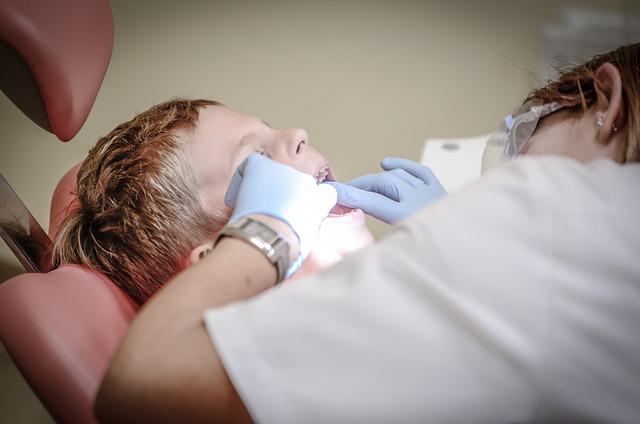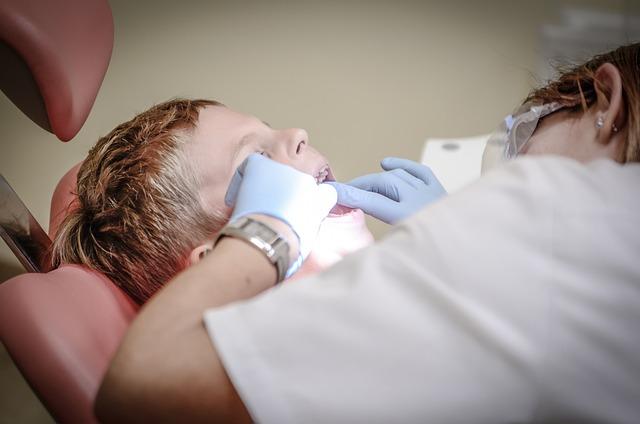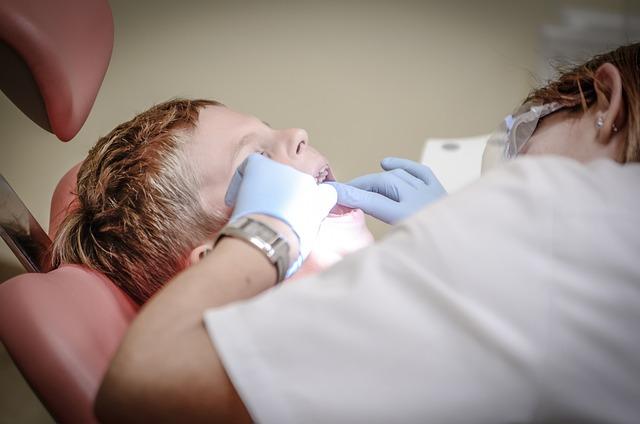Does Salt Water Rinse Hurt Wisdom Teeth: Expert Opinions
Wisdom teeth, those pesky third molars that emerge during our late teens or early twenties, often bring along a host of discomforts. From swollen gums to throbbing pain, these unwelcome visitors can turn our lives upside down. Desperate for relief, many of us have turned to salt water rinses, a seemingly simple solution that has been passed down through generations. But does this age-old remedy truly alleviate the agony or is it just an old wives’ tale? To shed light on this dental conundrum, we sought out expert opinions from dental professionals who have delved into the science behind wisdom teeth and their interaction with salt water rinses. So, if you’re ready to separate fact from fiction and discover if salt water rinse is truly a friend or foe to your wisdom teeth, keep reading.
1. Understanding the Impact: The Effect of Salt Water Rinse on Wisdom Teeth
Wisdom teeth removal is a common dental procedure that many individuals undergo due to various reasons such as overcrowding, impaction, or potential infection. During the recovery period, it is essential to adopt proper oral hygiene practices to promote healing and prevent complications. One such practice that can greatly aid in the recovery process is a salt water rinse.
A salt water rinse, also known as saline solution, is a simple yet effective way to cleanse the surgical area, reduce swelling, and alleviate discomfort after wisdom teeth extraction. By dissolving salt in warm water, it creates a gentle antiseptic solution that helps cleanse the wound, eliminate bacteria, and promote healing. This natural remedy can provide numerous benefits, including:
- Reducing inflammation: The salt water rinse can help minimize swelling and inflammation around the surgical site, providing relief from discomfort and speeding up the healing process.
- Preventing infection: The saline solution acts as a natural disinfectant, killing harmful bacteria that may cause infections. Regular rinsing can help keep the area clean and reduce the risk of post-operative complications.
- Promoting healing: The gentle cleansing action of the salt water rinse aids in removing debris and promoting the growth of new tissue, facilitating the healing of the surgical site.
It is important to note that while a salt water rinse can be beneficial, it should always be used in conjunction with the instructions provided by your dentist or oral surgeon. Each individual’s case may vary, and your healthcare professional will provide specific guidelines tailored to your needs. With proper care and the inclusion of salt water rinses, you can ensure a smoother and more comfortable recovery after wisdom teeth removal.

2. Expert Insights: Evaluating the Potential Harm of Salt Water Rinse for Wisdom Teeth
When it comes to post-wisdom teeth extraction care, many individuals turn to salt water rinses as a natural remedy to promote healing and prevent infection. However, it is important to evaluate the potential harm that salt water rinses might pose to wisdom teeth recovery. Here are some expert insights to consider:
- Benefits of Salt Water Rinses: Salt water rinses can help reduce swelling and inflammation, alleviate discomfort, and promote healing due to their mild antiseptic properties. The warm saline solution can also help flush out food particles and bacteria from the extraction site, reducing the risk of infection.
- Potential Harm: While salt water rinses are generally safe and effective, excessive or improper use can lead to certain risks. Overdoing rinses may disrupt the healing process by washing away important blood clots or interfering with the formation of new tissue. Additionally, using water that is too hot or using too much salt can cause irritation or a stinging sensation.
- Proper Usage: To ensure the best outcome, it is crucial to follow the proper guidelines for salt water rinses. Start rinsing 24 hours after the extraction, gently swishing the solution in your mouth for about 30 seconds before spitting it out. Use warm water mixed with a teaspoon of salt, making sure not to swallow the mixture. Repeat this process 2-3 times a day for the recommended duration provided by your dentist or oral surgeon.
Remember, while salt water rinses can be a valuable aid in promoting healing after wisdom teeth extraction, consulting with your dental professional is always advised to ensure it aligns with your specific case and complements the overall post-operative care plan.

3. Weighing the Pros and Cons: Expert Opinions on Salt Water Rinse for Wisdom Teeth
When it comes to the post-operative care for wisdom teeth removal, one common recommendation is the use of a salt water rinse. This simple solution involves mixing salt with warm water and gently swishing it around the mouth. But what do experts have to say about the pros and cons of this practice?
Proponents of salt water rinse argue that it can be highly beneficial for promoting healing and reducing the risk of infection. The antimicrobial properties of salt help to cleanse the surgical site, while the warm water soothes any discomfort or swelling. Additionally, salt water rinse is a natural and inexpensive alternative to commercial mouthwashes that may contain artificial ingredients.
However, it’s important to note that expert opinions on salt water rinse for wisdom teeth vary. Some dentists suggest that while it may have some benefits, it should not replace proper oral hygiene practices such as brushing and flossing. Others caution against using salt water rinse too frequently, as it can potentially irritate sensitive oral tissues. As with any post-operative care, it is always best to consult with your dentist or oral surgeon to determine the most appropriate and effective approach for your specific case.
Pros of Salt Water Rinse:
- Promotes healing and reduces the risk of infection
- Antimicrobial properties help cleanse the surgical site
- Soothes discomfort and swelling
- Natural and inexpensive alternative to commercial mouthwashes
Cons of Salt Water Rinse:
- May not replace proper oral hygiene practices
- Excessive use can potentially irritate oral tissues

4. Dispelling Myths: Separating Fact from Fiction Regarding Salt Water Rinse and Wisdom Teeth
When it comes to post-surgical care for wisdom teeth removal, there are several myths surrounding the use of salt water rinses. Let’s separate fact from fiction and provide you with the right information:
Myth 1: Salt water rinses are unnecessary after wisdom teeth extraction.
- Fact: Salt water rinses are highly recommended by dental professionals to promote healing and prevent infection. The warm saline solution helps reduce swelling, keep the extraction site clean, and aid in the removal of food particles.
Myth 2: Salt water rinses can be replaced with regular mouthwash.
- Fact: While mouthwash can provide some benefits, it often contains alcohol or other ingredients that may irritate the surgical site. Salt water, on the other hand, is a gentle and natural solution that aids in soothing the area without causing any harm.
Myth 3: Salt water rinses need to be done multiple times a day.
- Fact: It is recommended to rinse with salt water after every meal or snack for the first few days following wisdom teeth extraction. After that, rinsing two to three times a day is usually sufficient to maintain oral hygiene and promote healing.
By dispelling these myths, we hope to provide you with accurate information about the benefits and proper use of salt water rinses after wisdom teeth removal. Remember to always consult with your dentist or oral surgeon for personalized post-operative care instructions.

5. The Science Behind It: Exploring the Mechanisms of Salt Water Rinse on Wisdom Teeth
The science behind salt water rinses on wisdom teeth is fascinating. When wisdom teeth are extracted, it leaves behind an open wound in the mouth. Salt water rinses can help speed up the healing process and promote overall oral health. Here are the mechanisms through which salt water rinses work:
- Osmosis: Salt water has a higher concentration of salt than the cells in the mouth. This causes water to flow out of the cells through osmosis, reducing the swelling and inflammation in the area.
- Antibacterial properties: Salt water has natural antibacterial properties, which can help prevent infection in the wound. It creates an inhospitable environment for bacteria, reducing the risk of complications.
- Promotes blood circulation: Salt water rinses stimulate blood circulation in the mouth, which aids in the healing process. Increased blood flow brings essential nutrients and oxygen to the site, promoting faster healing.
By understanding the science behind salt water rinses, we can see why they are highly recommended for post-wisdom teeth extraction care. Incorporating this simple and effective practice into your oral hygiene routine can significantly improve your recovery and overall oral health.
6. Professional Recommendations: What Dental Experts Suggest About Salt Water Rinse for Wisdom Teeth
When it comes to taking care of your wisdom teeth after extraction, dental experts often recommend using a salt water rinse as part of your oral hygiene routine. This simple yet effective solution can help alleviate discomfort and promote healing in the surgical area.
So why do dental professionals suggest using a salt water rinse? Here are a few reasons:
- Reduces inflammation: Salt water has natural anti-inflammatory properties that can help reduce swelling and inflammation around the extraction site.
- Kills bacteria: Salt is known for its antibacterial properties, which can help eliminate harmful bacteria and prevent infection in the surgical area.
- Speeds up healing: Salt water rinses can help speed up the healing process by keeping the extraction site clean and free from debris.
When preparing a salt water rinse, it’s important to use the correct ratio of salt to water. Dissolve half a teaspoon of salt in 8 ounces of warm water, making sure the salt is fully dissolved before use. Gently swish the solution around your mouth for about 30 seconds, making sure to focus on the extraction site. Repeat this process a few times a day or as recommended by your dentist.
7. Potential Benefits: Investigating the Healing Properties of Salt Water Rinse for Wisdom Teeth
Saltwater rinse is a popular home remedy that has been widely used to alleviate discomfort and promote healing after wisdom teeth extraction. The potential benefits of this simple yet effective method are worth investigating further. Here are some key advantages that make saltwater rinse an attractive option for wisdom teeth recovery:
1. Reduces inflammation: Saltwater has natural anti-inflammatory properties that can help soothe the swelling and redness around the extraction site. This can provide relief from pain and promote faster healing.
2. Prevents infection: The saline solution created by mixing salt with water acts as a gentle disinfectant. Rinsing with saltwater can help eliminate bacteria and prevent infection at the surgical site, reducing the risk of complications.
3. Promotes oral hygiene: Saltwater rinse can be a valuable addition to your oral hygiene routine, especially after wisdom teeth removal. It can help cleanse the mouth, flush out food particles, and maintain a clean and healthy environment for healing.
Remember, while saltwater rinse can offer potential benefits, it is essential to consult with your dentist or oral surgeon for personalized advice. They can guide you on the appropriate frequency and duration of rinsing to ensure optimal healing and post-operative care.
8. Possible Risks: Understanding the Side Effects of Salt Water Rinse on Wisdom Teeth
While salt water rinse is generally considered safe and beneficial for oral health, it is important to be aware of potential side effects or risks, especially when using it for wisdom teeth. Here are some possible risks to consider:
- Irritation and discomfort: Some individuals may experience mild irritation or discomfort in the mouth or along the gum line after using a salt water rinse. This can be due to the saline solution’s osmotic effect, which draws out excess fluid and impurities.
- Allergic reactions: Although rare, some people may be allergic to salt water rinse or develop an allergic reaction to the ingredients used in the preparation. If you experience any signs of an allergic reaction, such as swelling, itching, or difficulty breathing, discontinue using the rinse and seek medical attention immediately.
- Excessive use: Using a salt water rinse too frequently or for extended periods can disrupt the natural balance of oral bacteria. This may lead to an overgrowth of harmful bacteria, potentially causing oral health issues. It is recommended to follow the advised frequency and duration of use provided by your dentist or oral healthcare professional.
Remember, while salt water rinse can be a helpful adjunct to your oral hygiene routine, it is essential to use it correctly and be mindful of any potential risks. If you have any concerns or experience persistent discomfort, it is always best to consult with your dentist for personalized advice and guidance.
9. Personal Experiences: Real Stories on the Effects of Salt Water Rinse for Wisdom Teeth
Many individuals who undergo wisdom tooth extraction may wonder about the effectiveness of salt water rinses in promoting healing and reducing discomfort. To shed some light on the topic, we have compiled a collection of personal experiences shared by those who have incorporated salt water rinses into their post-surgery routine.
1. Reduced Swelling: Several users reported that regular salt water rinses helped alleviate swelling in the area surrounding their wisdom teeth extraction site. This reduction in swelling not only provided physical comfort but also aided in a quicker recovery process.
2. Improved Healing: A common observation among those who utilized salt water rinses was an improvement in the overall healing process. Many individuals reported that their extraction sites healed faster and experienced a decrease in discomfort when following a regular salt water rinse regimen.
3. Relief from Discomfort: Numerous individuals shared that salt water rinses provided temporary relief from the discomfort associated with wisdom tooth extraction. The warm saline solution helped soothe irritated gums, reduce sensitivity, and promote a sense of cleanliness in the mouth.
10. Conclusion: Making an Informed Decision about Salt Water Rinse for Wisdom Teeth
After considering the benefits and drawbacks of using a salt water rinse for wisdom teeth, it becomes clear that making an informed decision is crucial. Here are some key points to help guide you:
- Effectiveness: Salt water rinses have been widely recognized for their ability to reduce inflammation and promote healing. They can help alleviate discomfort and prevent infections in the mouth.
- Ease of use: One of the greatest advantages of salt water rinses is their simplicity. They can be easily prepared at home, using just salt and water. This makes them a convenient and cost-effective option.
- Limitations: While salt water rinses offer numerous benefits, it is important to note that they are not a substitute for professional dental care. If you experience severe pain, excessive bleeding, or other concerning symptoms, it is essential to seek the advice of a dentist.
By weighing these factors, you can confidently decide whether a salt water rinse is the right choice for your wisdom teeth care. Remember, consulting with your dentist is always recommended to ensure optimal oral health.
Frequently Asked Questions
Q: Does salt water rinse hurt wisdom teeth?
A: Expert opinions shed light on the matter, revealing that salt water rinses can actually provide relief and promote healing for wisdom teeth.
Q: How does salt water rinse benefit wisdom teeth?
A: Salt water rinses act as a natural disinfectant, reducing inflammation and preventing infection in the area surrounding wisdom teeth. They also help to draw out any accumulated debris and food particles, promoting a cleaner and healthier healing process.
Q: Are there any side effects of using salt water rinse on wisdom teeth?
A: When used correctly, salt water rinses have minimal side effects. However, some individuals may experience a temporary increase in sensitivity or slight discomfort during the rinsing process. It is essential to follow the recommended guidelines and consult with a dental professional if any concerns arise.
Q: How often should one use salt water rinse for wisdom teeth?
A: Dental experts recommend using salt water rinse two to three times a day, especially after meals, for optimal results. Consistency is key to ensuring proper oral hygiene and facilitating the healing process.
Q: Can salt water rinse replace other oral hygiene practices for wisdom teeth?
A: While salt water rinses are beneficial, they should not replace regular brushing, flossing, or other oral hygiene practices. These rinses serve as an adjunct to maintain good oral health during the healing period of wisdom teeth extraction.
Q: Are there any alternatives to salt water rinse for wisdom teeth?
A: While salt water rinse is a commonly recommended option, there are alternative products available, such as mouthwashes specifically designed for post-surgical care. It is advisable to consult with a dental professional to determine the most suitable alternative for your specific case.
Q: Can salt water rinse speed up the healing process for wisdom teeth?
A: While salt water rinses can aid in the healing process by reducing inflammation and preventing infection, it is important to note that individual healing times may vary. Following post-operative instructions provided by your dentist, along with incorporating salt water rinses, can contribute to a faster and smoother recovery.
Q: Is it safe to use salt water rinse if I have other dental conditions or medical complications?
A: In general, salt water rinses are safe for most individuals. However, it is crucial to inform your dentist about any existing dental conditions or medical complications before incorporating salt water rinses into your oral hygiene routine. They can provide personalized guidance and ensure your safety.
Q: Can salt water rinse be used for other dental concerns besides wisdom teeth?
A: Absolutely! Salt water rinses are widely recommended for various dental concerns, including gum infections, canker sores, and general oral hygiene. Their natural disinfectant properties make them a valuable addition to overall oral health maintenance.
Q: Is there any scientific evidence supporting the use of salt water rinse for wisdom teeth?
A: While scientific studies specifically focused on salt water rinses for wisdom teeth are limited, salt water rinses have been extensively used and recommended by dental professionals for their proven benefits in oral health. The anecdotal evidence and widespread acceptance in the dental community further support their efficacy.
In Summary
In conclusion, when it comes to the question of whether salt water rinse hurts wisdom teeth, expert opinions offer valuable insights. While some professionals believe that salt water rinse can provide temporary relief and promote healing after wisdom teeth extraction, others caution against its use due to potential risks and complications. The key takeaway here is that it is crucial to consult with your dentist or oral surgeon before starting any salt water rinse regimen. They will be able to assess your specific situation, provide personalized advice, and ensure your overall dental health is not compromised. Remember, professional guidance is vital in making informed decisions about your oral care.






